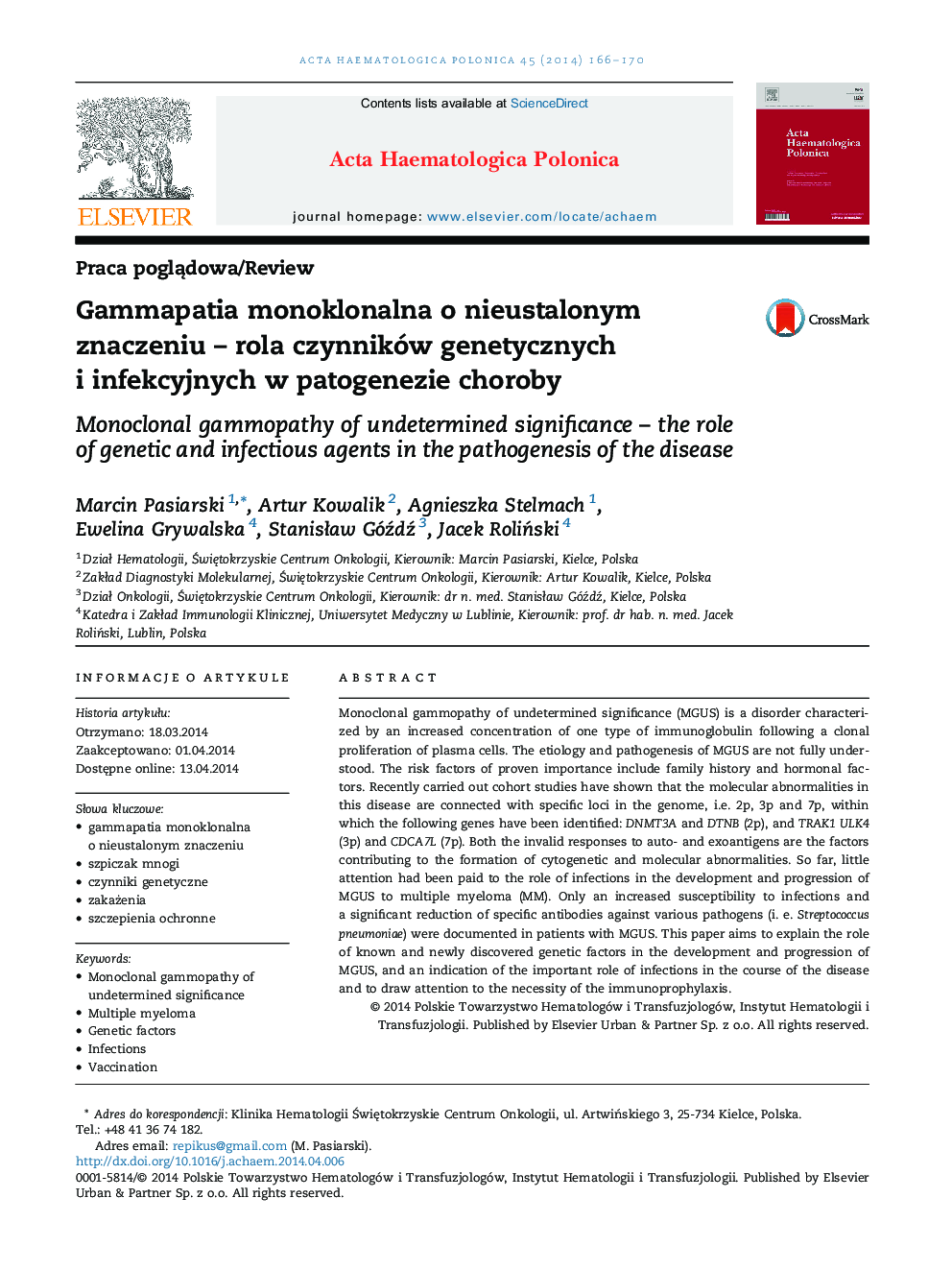| Article ID | Journal | Published Year | Pages | File Type |
|---|---|---|---|---|
| 3328288 | Acta Haematologica Polonica | 2014 | 5 Pages |
Abstract
Monoclonal gammopathy of undetermined significance (MGUS) is a disorder characterized by an increased concentration of one type of immunoglobulin following a clonal proliferation of plasma cells. The etiology and pathogenesis of MGUS are not fully understood. The risk factors of proven importance include family history and hormonal factors. Recently carried out cohort studies have shown that the molecular abnormalities in this disease are connected with specific loci in the genome, i.e. 2p, 3p and 7p, within which the following genes have been identified: DNMT3A and DTNB (2p), and TRAK1 ULK4 (3p) and CDCA7L (7p). Both the invalid responses to auto- and exoantigens are the factors contributing to the formation of cytogenetic and molecular abnormalities. So far, little attention had been paid to the role of infections in the development and progression of MGUS to multiple myeloma (MM). Only an increased susceptibility to infections and a significant reduction of specific antibodies against various pathogens (i. e. Streptococcus pneumoniae) were documented in patients with MGUS. This paper aims to explain the role of known and newly discovered genetic factors in the development and progression of MGUS, and an indication of the important role of infections in the course of the disease and to draw attention to the necessity of the immunoprophylaxis.
Keywords
Related Topics
Life Sciences
Immunology and Microbiology
Immunology
Authors
Marcin Pasiarski, Artur Kowalik, Agnieszka Stelmach, Ewelina Grywalska, StanisÅaw Góźdź, Jacek RoliÅski,
